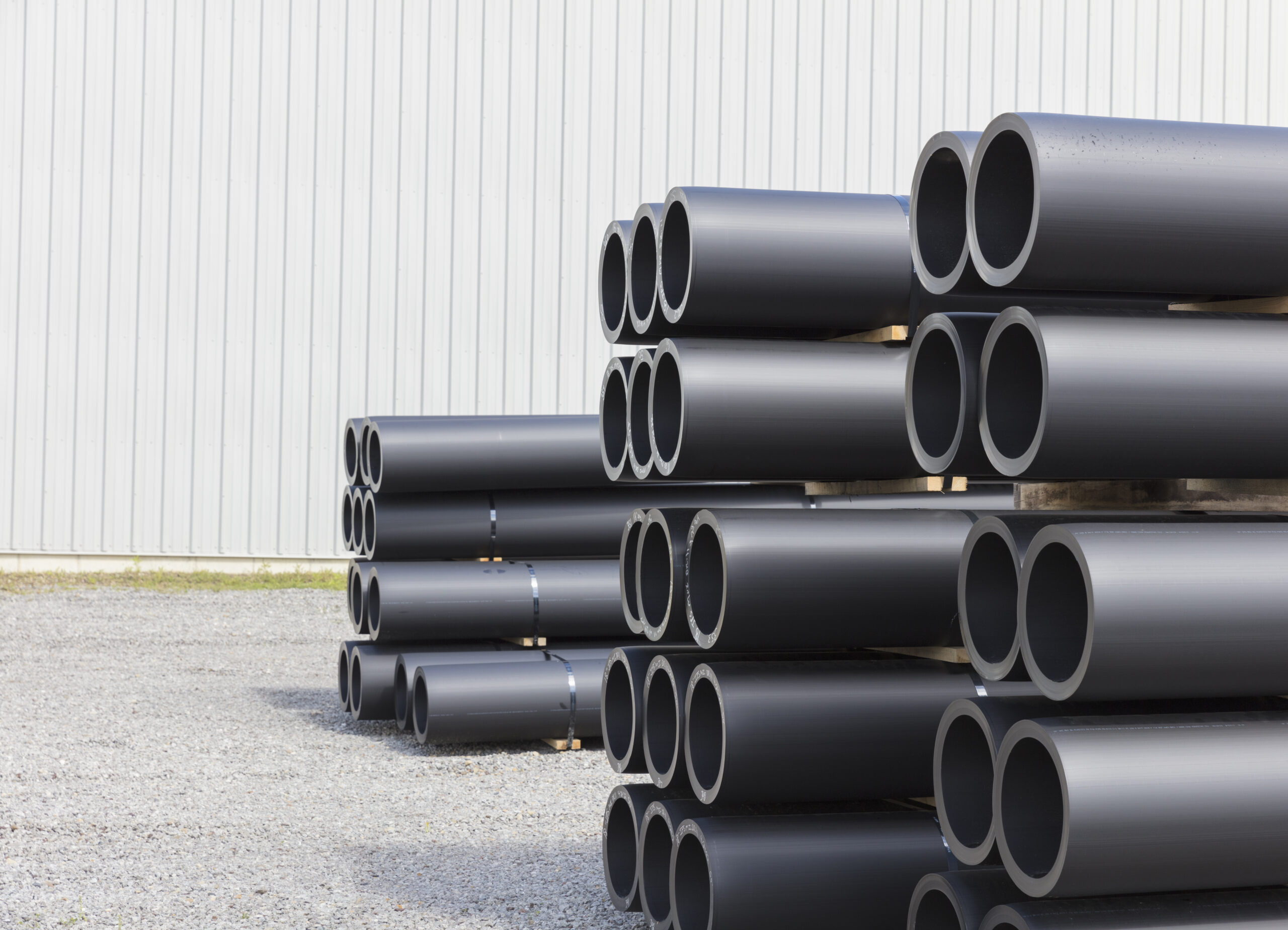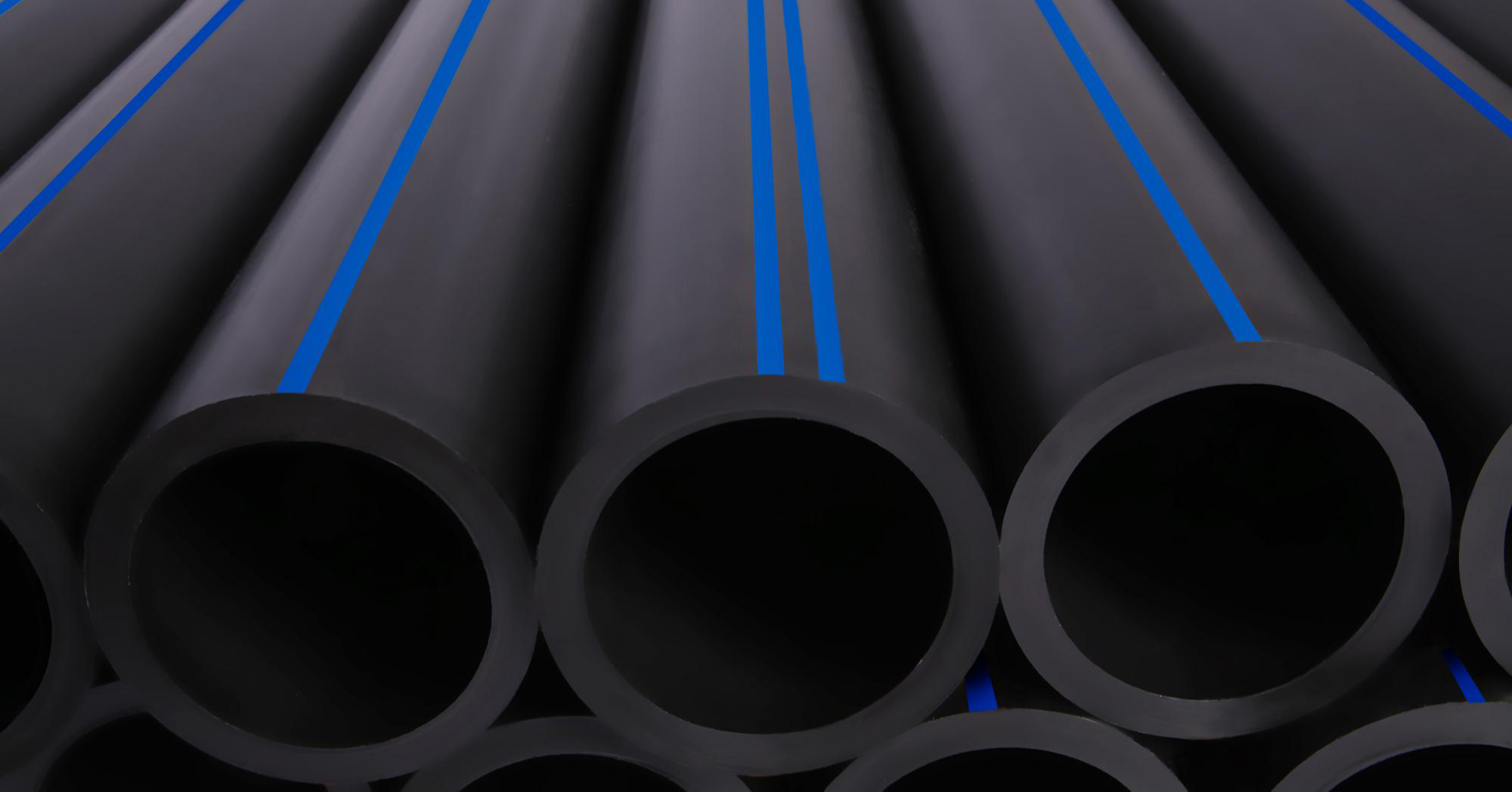How American Plastics HDPE Pipe for Oilfield Supports Oilfield Operations
Wiki Article
Recognizing the Trick Benefits of HDPE Pipe for Water and Wastewater Monitoring
The use of HDPE pipe in water and wastewater administration provides various benefits that merit factor to consider. Its extraordinary sturdiness and long life expectancy make it a preferred option for lots of projects. Furthermore, the product's resistance to deterioration and chemical damages boosts its integrity in different atmospheres. Nevertheless, the advantages extend beyond just durability and resistance. Exploring its cost-effectiveness and environmental impact discloses also more compelling factors for its widespread adoption in contemporary facilitiesOutstanding Sturdiness and Durability

HDPE pipe attracts attention for its outstanding longevity and long life, making it a favored option in water management systems. Constructed from high-density polyethylene, these pipelines can withstand considerable pressure and tension, guaranteeing reliable efficiency gradually. Their robust nature allows them to withstand severe ecological problems, consisting of temperature variations and soil activities, which can create various other materials to fall short.
The life-span of HDPE pipelines usually goes beyond 50 years, offering a cost-efficient option for communities and industries alike. Furthermore, the material's lightweight buildings streamline installation, lowering labor expenses and timeframes. This toughness decreases the demand for constant fixings or substitutes, additionally improving its economic appeal.
In water management applications, the dependability of HDPE pipes implies fewer interruptions and improved solution connection, making them important to sustainable infrastructure development. The combination of sturdiness and longevity solidifies HDPE's function as a foundation in efficient water monitoring options.

Resistance to Deterioration and Chemical Damage
While many products yield to deterioration and chemical damage with time, HDPE pipelines display impressive resistance, making them optimal for various water management applications. This strength stems from the molecular structure of high-density polyethylene, which is naturally non-reactive and does not rust like metals or break down from direct exposure to severe chemicals. Because of this, HDPE is very reliable in settings with aggressive compounds, such as wastewater systems that may have acids, bases, and organic solvents.
Additionally, HDPE pipelines can withstand ecological aspects such as soil level of acidity and saline conditions, further enhancing their suitability for diverse applications (hdpe pipe in stock Midland TX). Their capacity to maintain architectural honesty in time minimizes the danger of leakages and failures, which is important in ensuring the safety and security and integrity of water circulation and wastewater monitoring systems. Subsequently, the resistance to rust and chemical damage markedly adds to the total performance and long life of HDPE piping services
Cost-Effectiveness and Economic Advantages
When considering the financial ramifications of water management systems, the cost-effectiveness of HDPE pipelines comes to be apparent. These pipes provide lower installment and upkeep costs contrasted to traditional materials like metal or concrete. Their lightweight nature streamlines transport and installation, causing lowered labor expenditures. Furthermore, HDPE pipes display a lengthy life-span, usually surpassing half a century, which converts to less replacements and long-term financial savings.The resistance of HDPE to corrosion and chemical damages minimizes the demand for expensive repair services and substitutes. The pipelines additionally support reliable water flow, minimizing power expenses related to pumping systems. By minimizing leaks and water loss, HDPE pipes add to substantial financial benefits for districts and industries alike. In general, the initial financial investment in HDPE piping can generate considerable financial returns over the life expectancy of the water management system, making it a sensible option for lasting framework advancement.
Environmental Sustainability and Decreased Effect

Convenience and Adaptability in Setup
As a result of their unique homes, HDPE pipelines use remarkable flexibility and versatility in installment, making them ideal for a wide variety of applications. Their light-weight nature permits easier handling and transportation, lowering labor expenses and setup time. HDPE pipes can be curved and formed to fit various terrains and task demands, which is specifically beneficial in challenging environments.Additionally, their resistance to rust and chemical damage enables for setup in diverse settings without the demand for specialized protective coatings. The capacity to fuse joints creates a constant, leak-free system, enhancing the total stability speed rail pipe and reliability of the installation. HDPE's flexibility also accommodates ground activity, reducing the threat of damages in locations vulnerable to shifting dirt. In general, these qualities make HDPE pipelines not only flexible yet likewise a recommended option for water and wastewater monitoring systems.
Frequently Asked Questions
How Does HDPE Pipe Contrast to PVC in Water Management Applications?
HDPE pipe provides premium flexibility, resistance to rust, and sturdiness contrasted to PVC. Its lighter weight helps with less complicated installation, while its long life-span minimizes replacement costs, making HDPE a preferred option in water administration applications.What Is the Lifespan of HDPE Pipes Under Regular Conditions?
Under common problems, HDPE pipelines can have a life-span ranging from 50 to 100 years. Their toughness and resistance to corrosion add to their lasting performance in different applications, making them a trustworthy selection for infrastructure.Are HDPE Water Lines Recyclable After Their Life Span?
Yes, HDPE pipelines are recyclable after their life span. Texas hdpe pipe manufacturer. They can be refined and repurposed into brand-new products, greatly minimizing environmental impact and promoting sustainability within the market, making them an environment-friendly option for piping remediesWhat Is the Setup Process for HDPE Pipeline?
The setup process for HDPE pipes includes website prep work, trenching, pipe blend or mechanical signing up with, backfilling, and stress screening. Correct techniques assure a long lasting and effective system for carrying water and wastewater successfully.Can HDPE Piping Be Made Use Of for Both Safe And Clean and Non-Potable Water Equipments?
Yes, HDPE pipes can be utilized for both drinkable and non-potable water systems. Their flexibility, longevity, and resistance to corrosion make them appropriate for different applications, making sure secure and efficient transport of water in different contexts.Report this wiki page